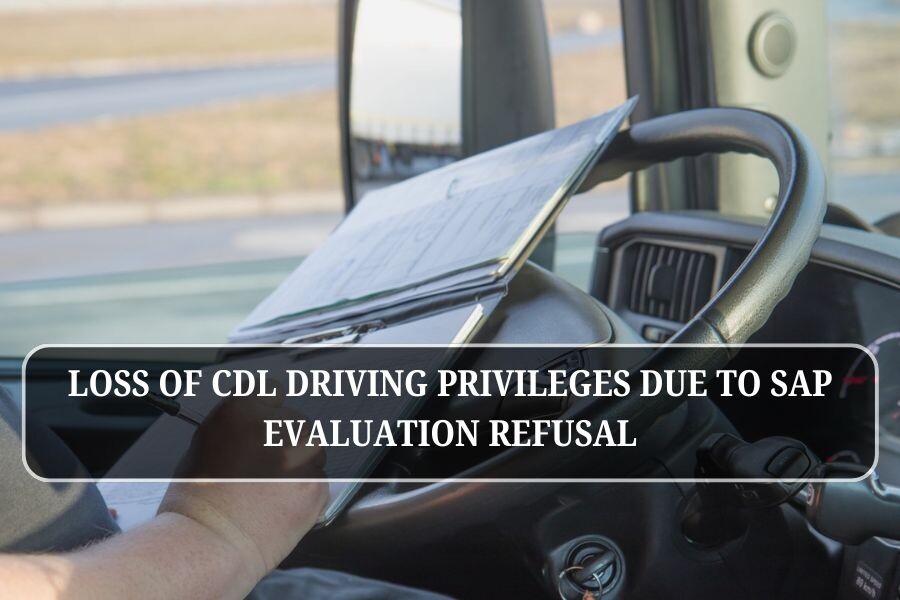What Does It Mean to Refuse a DOT SAP Evaluation?
Under DOT regulations, a refusal to complete a Substance Abuse Professional (SAP) evaluation is treated the same as a failed drug or alcohol test. If a CDL driver or safety-sensitive employee refuses to engage with the SAP process, it signals non-compliance with federal drug and alcohol rules. This includes not showing up for the evaluation, quitting before it’s complete, or refusing recommended treatment.
Why the SAP Evaluation Is Crucial
A DOT SAP Evaluation is required after a drug or alcohol violation under 49 CFR Part 40. The SAP determines what treatment or education you must complete before returning to duty. Without finishing this process, the DOT will not permit you to operate a commercial vehicle again.
Consequences of Refusing a SAP Evaluation
Refusing the evaluation sets off serious consequences:
- Ineligibility for Safety-Sensitive Jobs: You cannot work in any DOT-regulated role until you complete the SAP program.
- FMCSA Clearinghouse Record: Your refusal is recorded in the Clearinghouse, viewable by current and future employers.
- License Suspension: Some states may suspend your CDL if you fail to comply with return-to-duty (RTD) requirements.
- Employment Termination: Many carriers have a zero-tolerance policy and may dismiss drivers for non-compliance.
What Happens to Your CDL After a Refusal?
In most cases, your commercial driver’s license won’t be reinstated until you:
- Complete the SAP-recommended treatment or education.
- Pass a DOT return-to-duty test.
- Complete a series of follow-up tests after returning to duty.
If you don’t complete these steps, your Clearinghouse status remains “Prohibited,” meaning you’re disqualified from working in any DOT position.
Can You Recover from a Refusal in 2025?
Yes, but time is critical. Here are your steps:
Step 1: Contact a Qualified SAP
- Choose one from the DOT or DISA-compliant network.
- Virtual SAP evaluations are available and accepted in most cases.
Step 2: Complete the Assessment
- The SAP will assign education, counseling, or treatment.
Step 3: Return-to-Duty Test
- Once cleared by your SAP, you must pass a drug or alcohol test before resuming work.
Step 4: Follow-Up Testing Plan
- Your SAP will schedule additional testing for up to 5 years.
Avoiding a Refusal: Better Alternatives
Instead of ignoring the SAP process, choose an affordable, virtual option. Many DOT- and DISA-compliant programs in 2025 offer low-cost evaluations and flexible scheduling for out-of-state or off-duty drivers.
Final Thoughts
A SAP Evaluation refusal is not just a personal decision—it’s a career-limiting move with long-term consequences. If you want to return to duty, comply with FMCSA rules, and protect your CDL status, act quickly. Refusing will only delay your ability to drive again. Choose compliance and take the first step today.
